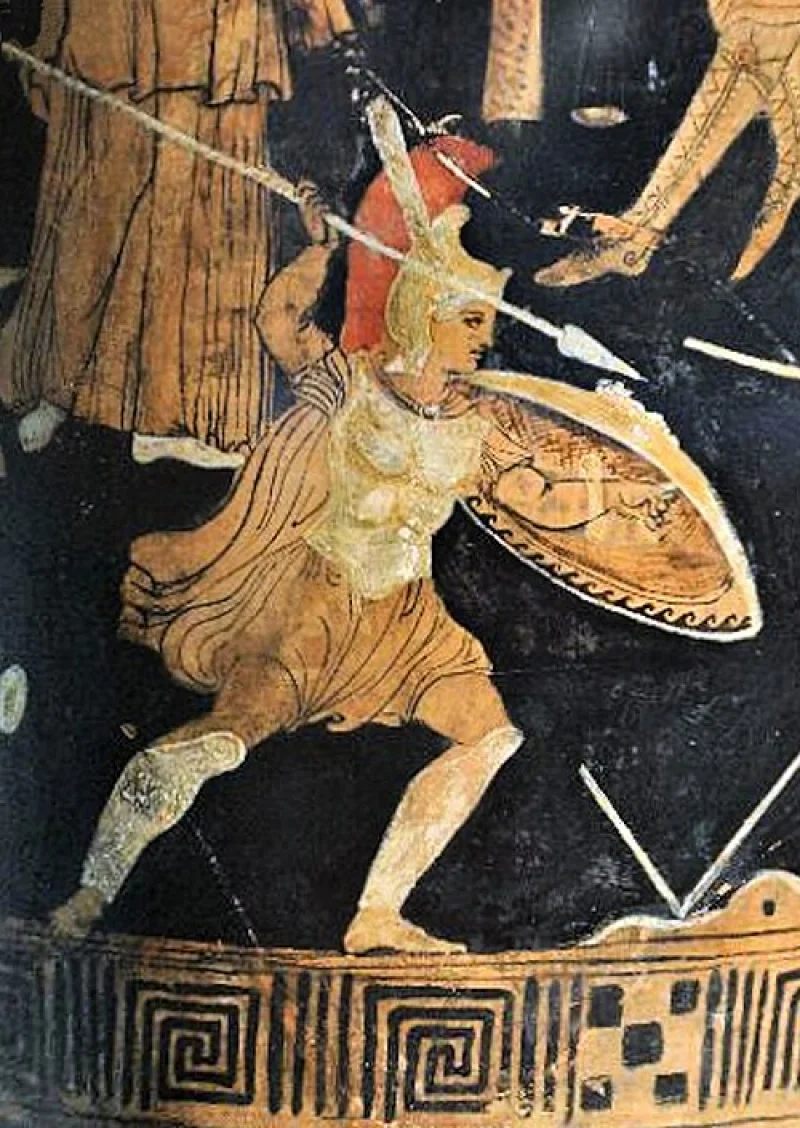Short Summary
Achilles is one of the most celebrated figures in Greek mythology, renowned for his exceptional strength, valor, and near invincibility in battle. His most famous role was in the Trojan War, where he was a central character in Homer's epic, "The Iliad." Known for his heel, which was his only vulnerable spot, Achilles remains a symbol of heroism and tragedy. His legacy endures in literature and art, where he is depicted as both a mighty warrior and a complex human character.
Early Life & Education
Achilles was born to Peleus, king of the Myrmidons, and Thetis, a sea nymph. According to legend, his mother attempted to make him immortal by dipping him in the River Styx, leaving only his heel vulnerable. He was educated by the centaur Chiron, who taught him the arts of warfare and healing. His early life was marked by the prophecy that he would either live a long, uneventful life or die young but achieve eternal glory. This duality heavily influenced his actions and decisions throughout his life.
Career Highlights
Achilles’ career is principally defined by his role in the Trojan War. He was a key figure in the Greek army and was instrumental in many of their victories. His refusal to fight after a dispute with Agamemnon and subsequent return to battle following the death of his close friend, Patroclus, are pivotal moments in "The Iliad." Achilles’ slaying of Hector, the Trojan prince, is one of the most famous scenes in the epic, showcasing his prowess and deep-seated anger. His actions and decisions profoundly impacted the course of the war.
Major Achievements
- Slain Hector: Achilles killed Hector, the Trojan prince, avenging his friend Patroclus and turning the tide of the war.
- Famed Warrior: Known for his unmatched skills in battle, contributing significantly to Greek victories in the Trojan War.
- Central Character in "The Iliad": His story is a cornerstone of Western literature, highlighting themes of heroism and tragedy.
Famous Quotes
- "There is nothing alive more agonized than man of all that breathe and crawl across the earth."
- "We are Achilles' men; we are far from home and can think of nothing but our return."
Interesting Facts
- The term "Achilles' heel" originates from the story of his sole vulnerability.
- Achilles’ armor was so significant that it became a prize contested by other Greek heroes after his death.
- He was said to have been invulnerable except for his heel, where his mother held him while dipping him into the River Styx.
Legacy / Influence
Achilles’ legacy is profound, resonating through centuries of literature, art, and culture. He is emblematic of the tragic hero, a figure whose greatness is matched by his flaws. The concepts of heroism, mortality, and the human condition explored through his character continue to influence storytelling. Achilles is a central figure in discussions of Greek mythology and classical literature, symbolizing both the glory and the fragility of human life.
FAQ
Q: Why is Achilles famous?
A: Achilles is famous for his role in the Trojan War and his depiction in Homer's "The Iliad," where he is portrayed as a legendary warrior with a tragic flaw—his vulnerable heel.
Q: What was Achilles' major weakness?
A: Achilles' major weakness was his heel, the only part of his body that was vulnerable to injury.
Q: How did Achilles die?
A: According to myth, Achilles died from an arrow shot by Paris, which struck his heel, his only vulnerable spot.









